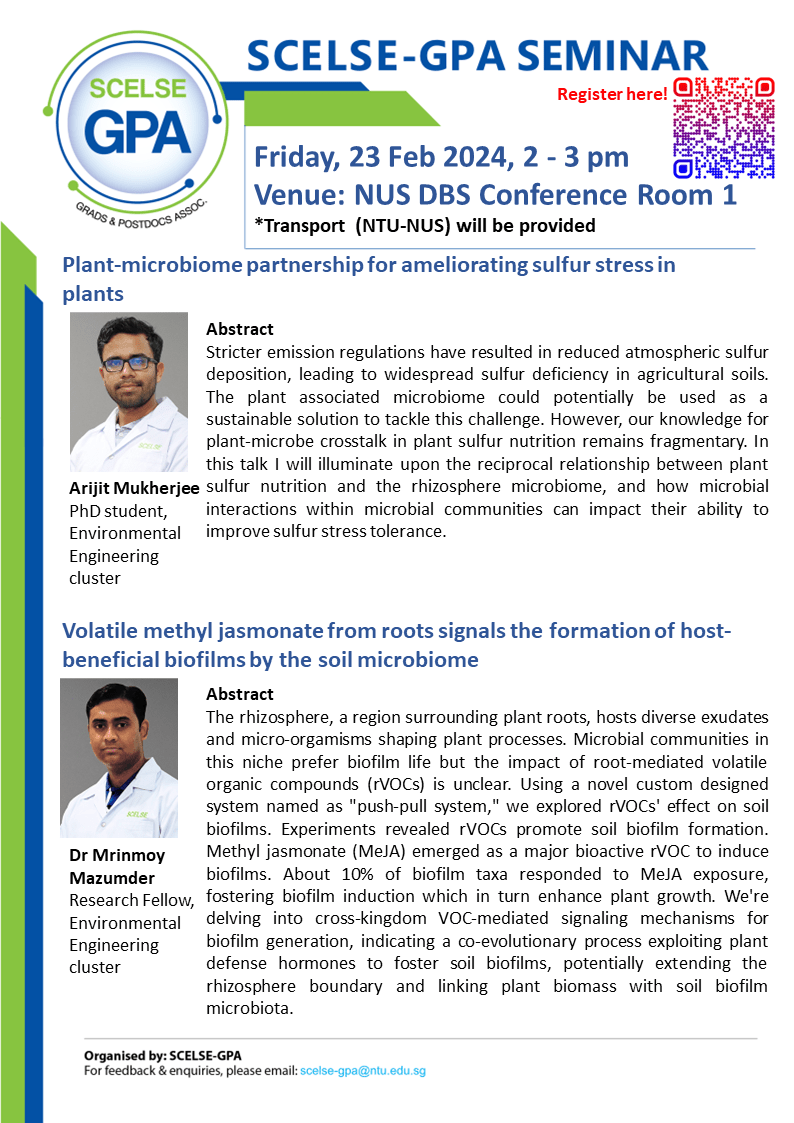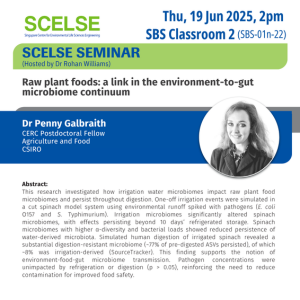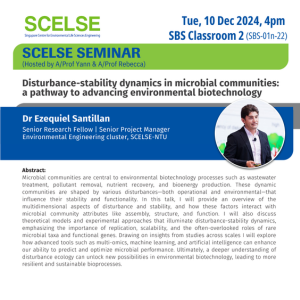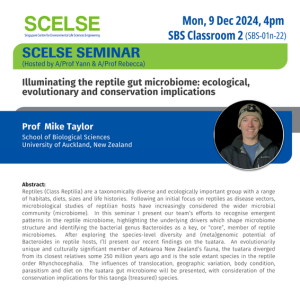SCELSE-Graduates & Postdocs Seminar Series: Host microbiome interactions focusing on the kingdom Plantae
Date: Friday, 23 Feb 2024
Time: 2pm – 3pm
Venue: NUS DBS Conference Room 1
(Transport from NTU to NUS is provided. Please indicate in the registration link. GPA Seminars are only open to SCELSE researchers. RAs and interns are also welcome to join.)
Please register by Monday, 19 Feb 2024 or scan the QR code in the poster below.
TITLE: Plant-microbiome partnership for ameliorating sulfur stress in plants
SPEAKER: Arijit Mukherjee | PhD student | Environmental Engineering cluster, SCELSE
Abstract:
Stricter emission regulations have resulted in reduced atmospheric sulfur deposition, leading to widespread sulfur deficiency in agricultural soils.
The plant associated microbiome could potentially be used as a sustainable solution to tackle this challenge. However, our knowledge for plant-microbe crosstalk in plant sulfur nutrition remains fragmentary. In this talk I will illuminate upon the reciprocal relationship between plant sulfur nutrition and the rhizosphere microbiome, and how microbial interactions within microbial communities can impact their ability to improve sulfur stress tolerance.
———————-
TITLE: Volatile methyl jasmonate from roots signals the formation of host-beneficial biofilms by the soil microbiome
SPEAKER: Dr Mrinmoy Mazumder | Research Fellow | Environmental Engineering cluster, SCELSE
Abstract:
The rhizosphere, a region surrounding plant roots, hosts diverse exudates and micro-orgamisms shaping plant processes. Microbial communities in this niche prefer biofilm life but the impact of root mediated volatile organic compounds (rVOCs) is unclear. Using a novel custom designed system named as “push-pull system,” we explored IVOCs’ effect on soil biofilms. Experiments revealed rVOCs promote soil biofilm formation. Methyl jasmonate (MeJA) emerged as a major bioactive VOC to induce biofilms. About 10% of biofilm taxa responded to MeJA exposure, fostering biofilm induction which in turn enhance plant growth. We’re delving into cross-kingdom VOC-mediated signaling mechanisms for biofilm generation, indicating a co-evolutionary process exploiting plant defense hormones to foster soil biofilms, potentially extending the rhizosphere boundary and linking plant biomass with soil biofilm microbiota.





